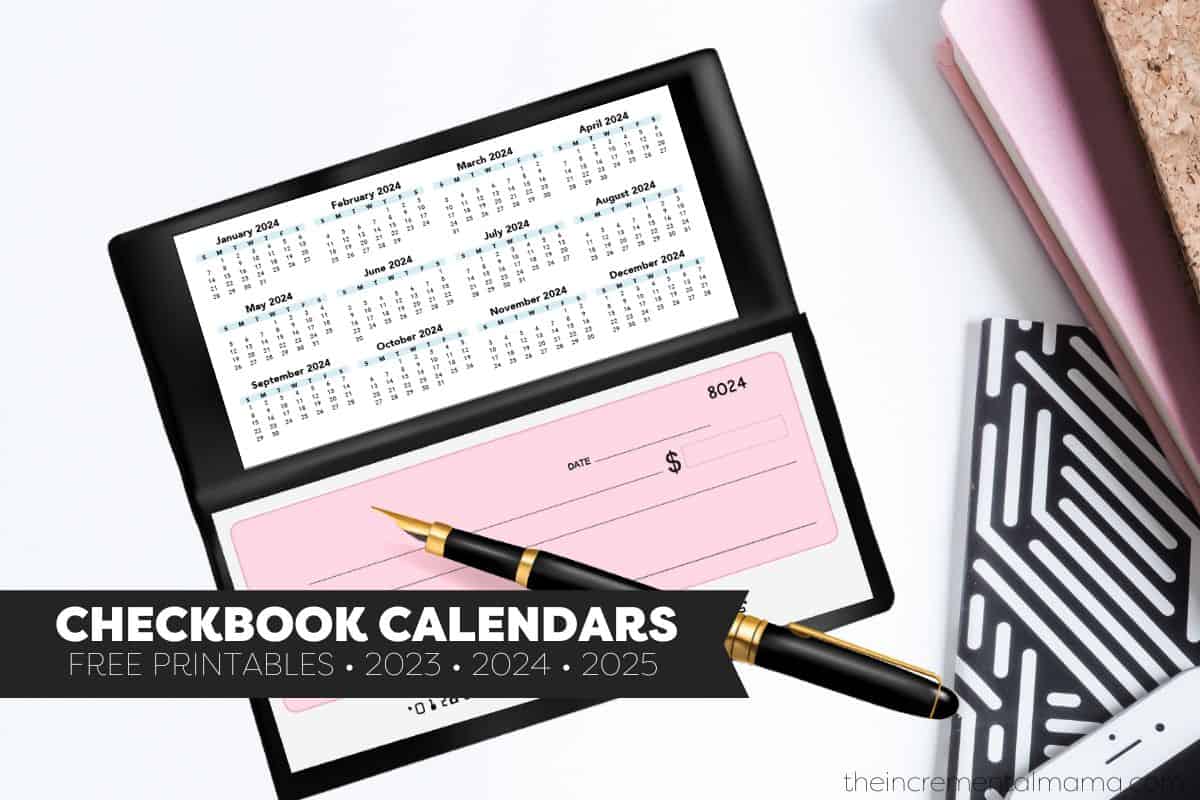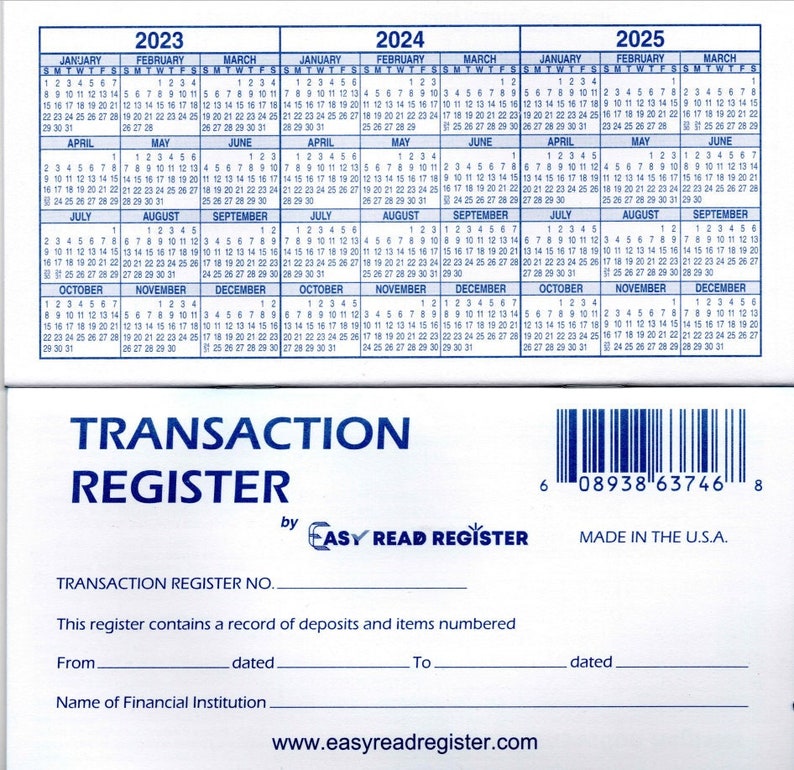Checkbook Calendars: An Essential Tool for Financial Planning in 2025 and 2026
Related Articles: Checkbook Calendars: An Essential Tool for Financial Planning in 2025 and 2026
- Vertex42 Printable Calendar 2025: A Comprehensive Guide To Planning And Organization
- Calendar Of 2025 With Holidays
- Monthly Calendar January 2025
- 2025 US Calendar: A Comprehensive Guide To Federal Holidays And Observances
- March 2025 Calendars: A Comprehensive Guide
Introduction
With great pleasure, we will explore the intriguing topic related to Checkbook Calendars: An Essential Tool for Financial Planning in 2025 and 2026. Let’s weave interesting information and offer fresh perspectives to the readers.
Table of Content
Video about Checkbook Calendars: An Essential Tool for Financial Planning in 2025 and 2026
Checkbook Calendars: An Essential Tool for Financial Planning in 2025 and 2026

In the realm of personal finance, organization and meticulous record-keeping are paramount for achieving financial stability and success. Among the various tools available to assist individuals in managing their finances, checkbook calendars stand out as an invaluable resource. These specialized calendars provide a comprehensive and user-friendly platform for tracking income, expenses, and account balances, empowering individuals to make informed financial decisions.
What is a Checkbook Calendar?
A checkbook calendar is a specialized type of calendar designed specifically for financial planning and record-keeping. It typically consists of a series of monthly pages, each of which features a calendar grid, a section for recording income and expenses, and a running balance section. The calendar grid provides a visual representation of the days of the month, allowing users to mark important dates and deadlines. The income and expense sections offer ample space for recording each transaction, including the date, description, amount, and account used. The running balance section displays the cumulative balance of the account, reflecting the impact of each transaction on the overall financial situation.
Benefits of Using a Checkbook Calendar
Checkbook calendars offer numerous advantages for individuals looking to enhance their financial management skills. These benefits include:
-
Enhanced Organization: By centralizing all financial transactions in one convenient location, checkbook calendars promote organization and reduce the risk of losing or misplacing important financial documents.
-
Accurate Record-Keeping: The structured format of checkbook calendars ensures that all transactions are recorded accurately, providing a clear and comprehensive picture of financial activity.
-
Simplified Budgeting: The running balance section allows users to track their expenses in real-time, facilitating the creation and maintenance of a realistic budget.
-
Improved Cash Flow Management: By monitoring the flow of income and expenses, checkbook calendars help individuals identify areas where they can optimize cash flow and reduce unnecessary spending.
-
Early Detection of Financial Issues: Regular use of a checkbook calendar enables individuals to spot potential financial issues early on, allowing them to take timely corrective actions.
Choosing the Right Checkbook Calendar
When selecting a checkbook calendar, several factors should be considered:
-
Size and Format: Choose a calendar that is portable enough to carry with you but also provides sufficient space for recording transactions.
-
Durability: Opt for a calendar made from durable materials that can withstand regular use.
-
Special Features: Consider calendars that offer additional features such as magnetic backing, tear-off pages, or expense categories for enhanced functionality.
-
Personal Preferences: Ultimately, the best checkbook calendar is one that meets your individual needs and preferences.
How to Use a Checkbook Calendar
Using a checkbook calendar is a straightforward process:
-
Record Income: Enter all sources of income, including wages, salaries, investments, and any other earnings, into the income section.
-
Record Expenses: For each expenditure, note the date, description, amount, and account used in the expense section.
-
Update Running Balance: After each transaction, calculate the new account balance and enter it in the running balance section.
-
Review and Reconcile: Regularly review your checkbook calendar to ensure accuracy and reconcile it with your bank statements.
Conclusion
Checkbook calendars are an indispensable tool for individuals seeking to take control of their finances. By providing a structured and comprehensive platform for tracking income, expenses, and account balances, these calendars empower users to make informed financial decisions, manage cash flow effectively, and achieve their financial goals. In the years 2025 and 2026, checkbook calendars will continue to play a vital role in helping individuals navigate the financial landscape and secure their financial well-being.








Closure
Thus, we hope this article has provided valuable insights into Checkbook Calendars: An Essential Tool for Financial Planning in 2025 and 2026. We thank you for taking the time to read this article. See you in our next article!